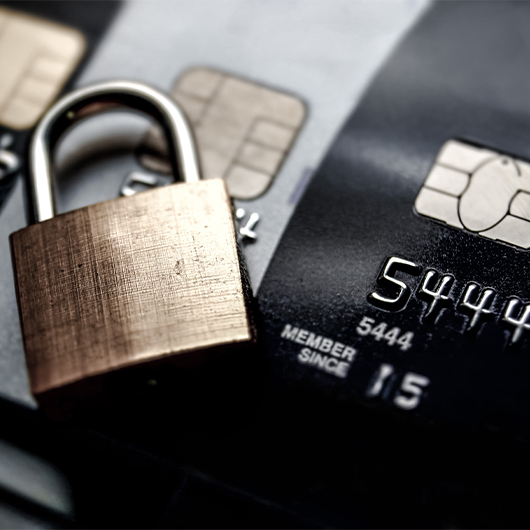Debit Cards vs. Credit Cards: Key Differences and Benefits
Debit Cards vs. Credit Cards: Key Differences and Benefits
If you’re trying to decide whether a debit card or credit card is right for you, learning more about each of these payment tools can help. Many consumers feel that having both cards can be a wise money management strategy and that the key is knowing when to use each. For example, they may reach for their debit card for everyday expenses like groceries and gas, while reserving credit cards for larger purchases, emergencies and discretionary spending, such as dining out or traveling.
Read on to understand why consumers make the choices they do and to learn more about the differences between, and advantages of using, debit and credit cards.
What are debit and credit cards?
Debit cards and credit cards provide a convenient way to pay for purchases, in person and online, but they work differently. Understanding these differences may help you make the right payment choice.
First, some definitions:
A debit card is a card typically issued to you when you open a checking or money market account. It is linked to that account so that you can access your funds for purchases and ATM transactions.
A credit card is a card that gives you access to a revolving line of credit that enables you to buy now and pay later, up to a maximum amount set by the card issuer (your “credit limit”). Statements are issued each month to include any purchases made, and you typically have at least three weeks to pay your balance in full or in part. You must make the specified minimum payment by the payment due date to avoid late fees, and any remaining balance is subject to interest charges per the card’s annual percentage rate (APR).
How do debit and credit cards compare?
Next, here are some areas to compare as you consider the benefits and drawbacks of debit card and credit cards:
How your transactions are funded and when you must pay. When you make a purchase with a debit card, the funds to cover that purchase are immediately drawn from your checking or money market account. When you use a credit card, you are essentially borrowing money with the promise of repaying it later, either all at once or over time.
Rewards and/or other perks. Some credit cards offer cardholders rewards or perks for using their cards — cash back, points, miles, referral bonuses, retail discounts, etc. The Dollar Bank Rewards Credit Card offers cash back on purchases, as well as a 0% APR 12-month introductory rate, for example. The Dollar Bank Low Rate Credit Card, designed for cardholders who may frequently carry a balance, offers a 0% APR six-month introductory rate, plus a relatively low interest rate going forward.
Access to cash. With a debit card, you can typically withdraw funds from an in-network ATM with no fees (out-of-network ATMs may trigger fees). Credit cards may offer cash advances — the opportunity to borrow cash from your available credit line (your credit limit minus any pending charges/payments) — but those advances may trigger a transaction fee and interest charges, which begin to accrue immediately and at a higher APR than that applied to regular purchases.
Spending limits. While a credit card account has a specified credit limit, based on a review of the cardholder’s credit history and score, income, debt and (potentially) other factors, debit card spending is limited only by the available balance in the cardholder’s linked account. Should you attempt to make a transaction that would exceed your credit limit or available balance, respectively, your transaction may be declined, or it may be covered but trigger over-limit or overdraft fees.
Some financial institutions offer overdraft protection, which can help you avoid debit card overdrafts by linking your checking account to a savings account, line of credit or credit card. In the event a transaction exceeds your checking account balance, the bank automatically transfers funds from the linked account to cover the transaction. Dollar Bank also offers No Overdraft Checking, a checking account that does not charge overdraft fees.
Fees. Aside from potential overdraft and out-of-network ATM fees, debit cards generally don’t impose fees. Credit cards may charge an annual fee, late payment fees or cash advance fees.
Risk of debt accumulation. Debit cards may help you avoid accumulating debt, because you can spend only what you have on hand in your checking or money market account. Credit cards, on the other hand, may encourage overspending, since payments are delayed; unless you track your purchases closely, you may not realize how much you’re spending. Then, if you don’t make payment in full each month, interest adds to your outstanding debt and may become unwieldy.
Effect on your credit history. While using a debit card does not affect your credit score or history, you do have the potential to build your credit by wisely managing your credit card activity, since those transactions entail borrowing and repaying funds. Be aware, though, that missing or making late payments, or maintaining a high balance, can have a negative impact on your credit.
Qualification. Prior to their issuance, debit cards generally don’t require a credit check; credit cards do. This can make it more difficult for consumers with little or no credit history to get approved for a credit card. If you haven’t yet built credit or you’d like to repair your credit, consider a secured credit card. A secured card requires you to deposit funds against which you may make purchases just as if you were using a standard credit card.
Features to look for in debit and credit cards
Whether you find yourself leaning toward a debit card, credit card or both, look for features that offer you security, convenience and more:
Security. Your financial institution should always prioritize safeguarding your account and identity. Take the time to understand the security features and options, as well as the lost card protocol, of any debit or credit card you use. For example, Dollar Bank offers real-time fraud alerts, Mastercard ID Theft Protection™* and My Cards, a security feature you can use to manage and protect your Dollar Bank Debit Mastercard® or credit card with just a few taps.
Convenience. Debit and credit cards are inherently convenient, enabling cardholders to complete cashless transactions both online and in person, but also keep in mind the importance of having an expansive ATM network, where you can access your cash without surcharges. You may also be interested in the convenience of contactless pay capabilities — the ability to tap and go or to add your card to your favorite digital wallet so you can use your phone or tablet to make fast, secure payments.
Customization. If you like the added touch of personalization, make sure your card provider offers the option of designing your own card. Dollar Bank’s Custom Card Center lets cardholders choose from a gallery of images, or you can provide your own image to truly make your card your own.
If you’d like more information about debit or credit cards, or would like to discuss which option(s) may be right for you, call Dollar Bank at 1-800-242-2265 or visit your local office today.
*This benefit is provided by Generali Global Assistance Inc. Certain terms, conditions and exclusions apply. Please see your Guide to Benefits for details or call 1-800-MASTERCARD.
Mastercard is a registered trademark of Mastercard International Incorporated.
This article is for general information purposes only and is not intended to provide legal, tax, accounting or financial advice. Any reliance on the information herein is solely and exclusively at your own risk and you are urged to do your own independent research. To the extent information herein references an outside resource or Internet site, Dollar Bank is not responsible for information, products or services obtained from outside sources and Dollar Bank will not be liable for any damages that may result from your access to outside resources. As always, please consult your own counsel, accountant, or other advisor regarding your specific situation.
Posted: August 24, 2025




